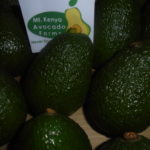
Avocados From Kenya
Kenya is a major source of avocados in Africa. This is due to its high elevations of between 1200m and 1800m, where especially the high-altitude Guatamelan Hass variety thrives. This is the secret why the country has gained popularity for its avocado fruit in Europe. The fruits grow under natural conditions and besides, economic conditions in other parts of the world help them get global demand.
For instance, in 2017, Peru faced a shortfall in avocado production. Following the upshot demand of avocados in the EU, Kenyan and Australian farmers were the ones who substantially benefited.
In 2004 through 2015, Kenya ranked no.3 in the heels of Mexico and Israel as a net exporter of avocados to the EU market. In 2006, as much as 60 percent of total harvests did not undergo export. This was due to poor harvesting procedures. This has changed in 2017 where more than 50% of all harvests are acceptable, abroad. Farmers have learned to follow phytosanitary and organic growth methods with little or no use of harmful pesticides.
A number of new factors alongside quality parameters and shortfall in world markets have made Kenya avocados popular abroad:
New emerging markets: the expatriate population in the Gulf countries have seen Kenya become a net exporter of avocados to the UAE, Bahrain and Saudi Arabia.
Emerging SMEs: as far back as 2006, the main exporters were large companies like Kakuzi, Indu Farms, VegPro and East African Growers. In 2017, new family grower-oriented SMEs, including Mount Kenya Avocados have come on to the scene. These small and medium enterprises are popular with importers because of flexibility especially in quantity, quality and pricing.
Lack of processing locally boosts raw exports: though avocados make cosmetics, lubrication products and even motor fuel, this is often overlooked in Kenya. This has led to the fruit being a raw export in Europe without processing. The nearest processed product that finds market abroad is avocado extra virgin oil.
Growth of local reseller market: most Kenya avocados either find their way into the local markets or abroad. Because each Kenyan eats about 1/2 kg of avocado, yearly, (quite a high margin), the local reseller market has become also quite popular. A single medium-sized fuerte avocado sells at KSH15 or $0.15 while its hass equivalent goes for KSH20 or $0.2.
New Developments
Willy Bett, the Cabinet Secretary for Agriculture in Kenya is also eyeing to lift the ban on avocado exports to South Africa. Since 2010, the country has not been exporting the once KSH120 million-per-year worth of avocado exports to Johannesburg, Cape Town, Durban or Pretoria. This was due to quality and pathogenic problems. This will soon go away as farmers have sought global certifications which have enabled them to find favor, with even the EU importers.
The agricultural cabinet secretary in Kenya is also seeking to plant thousands of avocado trees in the Rift Valley. This is to provide a source of revenue for the locals as the fruit attracts mane consumers, locally and abroad due to its nutrition. A single avocado provides the following approximate nutrition:
▪ 2 to 4% high protein
▪ 1 to 2% vitamin K and minerals like Magnesium and sulphur.
▪ Oil content worth 20 to 30% of the fruit
▪ High margin of antioxidant or Vitamin E
▪ Besides, people who suffer from HIV/AIDS have come to consider the consumption of the nutritious fruit as health-changing.
Conclusion
With the growth of the export sector in Kenya, avocado remains a key local reseller and export fruit. If old markets as South Africa reopen, they will supplement new markets like Malaysia and South Korea that have recently enjoined fellow European importers to make Kenya a haven for the fruit. Besides, there is a growing market for processed avocado oil.
In 2015, Selina Wamucii exported 2,000,000 avocado fruits. Alongside this impressive figure, we put on sale 1000 liters of unrefined avocado oil. All this was from just 300 family growers. In 2016, the figure depreciated to 1,500,000, with 300 liters crude avocado oil, as we branched into other fruits like mangos and pineapples.
Get in touch today or make an order right at our homepage for the most competitive prices!

